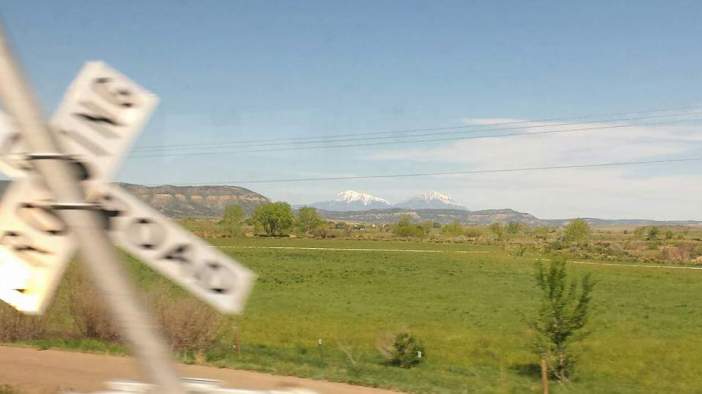I knew God’s love first. There, in rural Illinois, among the high branches of trees, the breeze whispering through the last of the fall leaves, I would lie on the floor of the woods by our house, the cool ground shaded and blanketed with leaves, and look up.
The ground held me and supported me. The sun winked through the branches. The world was a mosaic of light. I breathed.

And in the trees, too. The maple out front and the few stocky trees that lined our long gravel driveway. I’d clamber to their pinnacles and just sit, staring out over the corn and soybean fields, over the ribbons of road that meandered through the farmland, down to what I was told was an abandoned railway station.
I was surrounded by abandoned things—discards that became my imagination’s treasures. The abandoned railroad tracks by our house that gave us a straight shot into an even deeper wood and rusted railroad nails that I hefted in my small hand. A hunting stand high in a tree, most of the wooden steps of its ladder either rotted or missing. Sheets of corrugated metal at the entrance to our woods—parts of a small structure that, in my siblings’ and my minds, could’ve once been so many things—an old shed, a playhouse, someone’s home.
But we were not abandoned out in those quiet woods. We built forts and played in the big, muddy ditch that scratched down its center. I watched, and I listened. And when I was saddest, I always ran to the woods, tears streaming down my face, until the pain subsided, until my crying stopped.
In those moments, in that quiet, I heard something. I felt something.
I knew the world was made of more than what my eyes saw. And I knew, at the heart of whatever that was, was love. Continue reading “A Place at the Table: Reflections of a Queer Methodist”

 I’m gonna be honest—this is my second time reading this book, and I read it before the election results were announced. I’d filled out my absentee ballot. I’d scanned and sent it from the
I’m gonna be honest—this is my second time reading this book, and I read it before the election results were announced. I’d filled out my absentee ballot. I’d scanned and sent it from the 